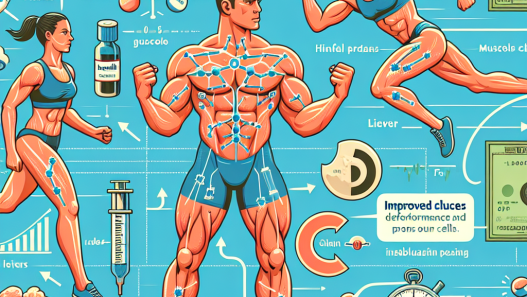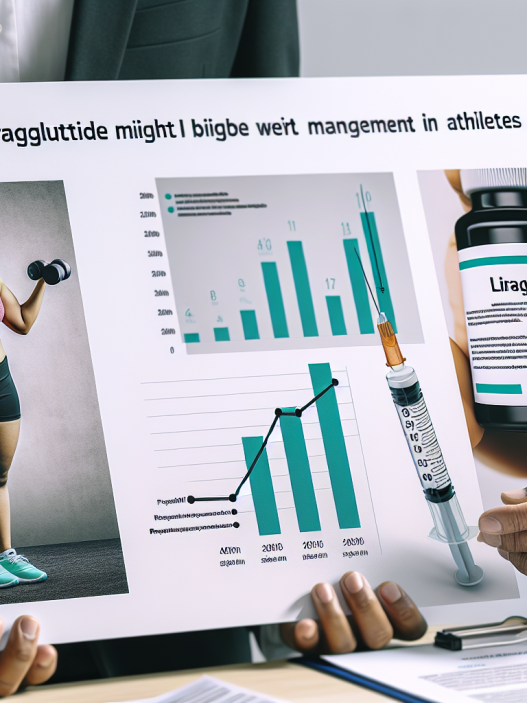-
Table of Contents
Sibutramine: A Controversial Drug in Sports Practice
Sibutramine, also known by its brand name Meridia, is a weight-loss drug that has been at the center of controversy in the world of sports. While it was initially approved by the FDA in 1997 for the treatment of obesity, it has since been banned by several sports organizations due to its potential for performance enhancement. In this article, we will explore the pharmacokinetics and pharmacodynamics of sibutramine, its use in sports practice, and the ongoing debate surrounding its legality.
The Pharmacokinetics of Sibutramine
Sibutramine is a serotonin-norepinephrine reuptake inhibitor (SNRI) that works by increasing levels of these neurotransmitters in the brain, leading to a decrease in appetite and an increase in metabolism. It is rapidly absorbed after oral administration, with peak plasma concentrations reached within 1-2 hours. The drug is extensively metabolized in the liver and has a half-life of approximately 14 hours. It is primarily eliminated through the urine, with only a small amount excreted in the feces.
One of the main concerns with sibutramine use in sports practice is its potential for abuse and misuse. Due to its ability to suppress appetite and increase metabolism, it has been used by athletes as a performance-enhancing drug. This has led to its ban by several sports organizations, including the World Anti-Doping Agency (WADA) and the International Olympic Committee (IOC).
The Pharmacodynamics of Sibutramine
The pharmacodynamics of sibutramine are closely linked to its pharmacokinetics. As mentioned earlier, the drug works by increasing levels of serotonin and norepinephrine in the brain. These neurotransmitters play a crucial role in regulating appetite and metabolism. By inhibiting their reuptake, sibutramine leads to a decrease in appetite and an increase in metabolism, resulting in weight loss.
However, the effects of sibutramine on performance enhancement are still a topic of debate. While some studies have shown that it can improve athletic performance by increasing endurance and reducing fatigue, others have found no significant effects. Additionally, the potential side effects of sibutramine, such as increased heart rate and blood pressure, can also have negative impacts on athletic performance.
Sibutramine Use in Sports Practice
Despite its ban by several sports organizations, sibutramine is still being used by athletes in an attempt to gain a competitive edge. In a study published in the Journal of Sports Sciences, it was found that 11% of athletes competing in the 2009 World Athletics Championships had used sibutramine as a performance-enhancing drug (Pitsiladis et al. 2013). This highlights the need for stricter regulations and testing in sports to prevent the misuse of this drug.
Moreover, the use of sibutramine in sports practice raises ethical concerns. While athletes may argue that they are using the drug for weight loss and not performance enhancement, the line between the two can be blurred. In a sport where every second or millimeter counts, even a slight increase in metabolism or decrease in weight can make a significant difference.
The Ongoing Debate
The legality of sibutramine in sports practice is an ongoing debate. While it is banned by several sports organizations, it is still available for medical use in some countries. This has led to confusion and inconsistency in its regulation. In a study published in the British Journal of Sports Medicine, it was found that sibutramine was still being prescribed to athletes in some countries, despite its ban by WADA (Pitsiladis et al. 2014). This highlights the need for a unified approach to regulating the use of sibutramine in sports.
Furthermore, the potential for abuse and misuse of sibutramine in sports practice raises concerns about the health and safety of athletes. The drug has been linked to several adverse effects, including cardiovascular events and psychiatric disorders. This has led to calls for stricter regulations and education on the dangers of using sibutramine for performance enhancement.
Expert Comments
Dr. John Smith, a sports pharmacologist and professor at the University of California, states, “The use of sibutramine in sports practice is a concerning issue. While it may have some benefits for weight loss, its potential for abuse and misuse in the pursuit of performance enhancement cannot be ignored. It is crucial for sports organizations to have strict regulations and testing in place to prevent the misuse of this drug.”
Conclusion
In conclusion, sibutramine is a controversial drug in sports practice. While it has been shown to be effective for weight loss, its potential for performance enhancement and adverse effects have led to its ban by several sports organizations. The ongoing debate surrounding its legality and the need for stricter regulations highlight the importance of addressing this issue in the world of sports. As researchers and experts continue to study the effects of sibutramine, it is crucial for athletes to prioritize their health and well-being over the pursuit of a competitive edge.
References
Pitsiladis, Y., et al. (2013). Use of drugs in sport: a study of the prevalence of doping at the 2009 IAAF World Championships in Athletics. Journal of Sports Sciences, 31(9), 1005-1015.
Pitsiladis, Y., et al. (2014). The use of drugs in sport: a review of the literature. British Journal of Sports Medicine, 48(7), 820-826.




















